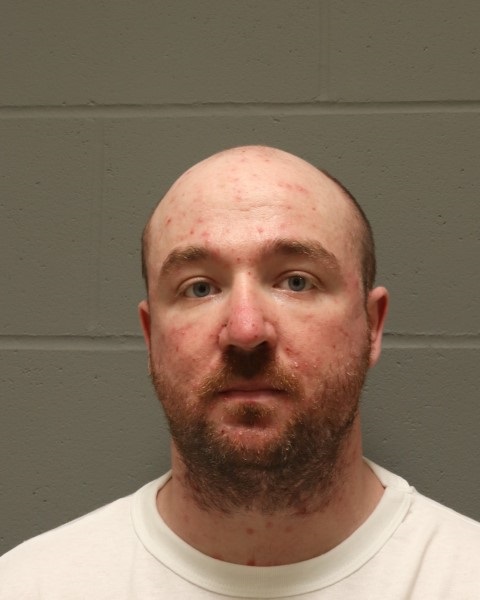
Duluth judge denies new trial in murder case affected by COVID-19 public health measures
DULUTH, Minn. — A judge has denied a new trial for a murder defendant who was found guilty in a courtroom that was closed to the public during the height of the COVID-19 pandemic.
St. Louis County Chief District Judge Leslie Beiers said Christopher Floyd Boder’s October 2020 trial was held under the best-available circumstances at the time, utilizing technology to ensure public access to proceedings.
“The pandemic and the public health directive to separate individuals by 6 feet to protect them from a potentially deadly disease, for which there was no vaccine, that was killing millions of people worldwide, and was shuttering the community, constitutes an overriding interest in limiting the public’s physical presence in the courtroom,” Beiers wrote in a recent order.
A judge has been asked to grant a new trial for a Duluth, Minn., man convicted of murder in a courtroom that was closed to the public during the COVID-19 pandemic. Christopher Floyd Boder, 35, is serving 25½ years in prison for his role in the September 2019 shooting death of Timothy Jon Nelson, 33, in West Duluth. (Minnesota Department of Corrections)
Boder, now 35, was found guilty of aiding and abetting intentional second-degree murder in the September 2019 shooting death of Timothy Jon Nelson, 33, in West Duluth. He was subsequently sentenced to 25 ½ years in prison.
The trial, among the first to proceed at the St. Louis County Courthouse after a pandemic shutdown, was held with strict safety protocols enacted under a 6th Judicial District plan approved by the Minnesota Judicial Council.
To ensure adequate social distancing, court officials completely rearranged one of the building’s largest courtrooms. As attorneys and court staff were spread out, a public gallery that typically could accommodate several dozen spectators was repurposed as the jury’s seating area.
That meant family and friends of both Nelson and Boder, along with members of the press, were not allowed in the physical courtroom. Instead, they viewed the proceedings via a closed-circuit broadcast in another courtroom one floor below.
The Minnesota Court of Appeals in February 2022 backed the plan, noting Boder never objected and ruling that the procedures “were not broader than necessary to prevent the spread of the virus.”
However, the Minnesota Supreme Court in July weighed in on pandemic-related closures for the first time, opining that district judges “must consider reasonable alternatives” before omitting spectators from the courtroom. The high court sent Boder’s case back to Judge Beiers, directing her to issue factual findings regarding the 2020 decision.
In response, defense attorney Jeremy Downs contended his client was entitled to a new trial because Beiers at the time did not believe that the use of a separate viewing room amounted to a courtroom closure.
Downs’ argument, however, was at least partially predicated on a belief that the court used a one-way video system, allowing only spectators to view and hear the courtroom proceedings. Beiers said that was inaccurate; the system was two-way, with the judge, court staff and witnesses able to view a screen showing activities in the nearby public room.
Addressing the defense’s argument that an alternative location could have been selected for the trial, Beiers ruled the Duluth courthouse was the only viable option.
Sixth Judicial District Administrator Sara Taylor submitted an affidavit describing extensive efforts by her team and other criminal justice and county leaders to explore other venues during the halt on trials.
Among the facilities researched, Taylor said, were the Duluth Heritage Center, Clyde Iron Works, Greysolon Plaza, Radisson Hotel, AAD Shrine Temple, Duluth Entertainment Convention Center (DECC), county transportation buildings, the Carlton County Government Services Building and a community center in Hibbing.
“Some of the locations were not large enough, some were closed, some did not have adjacent space needed for sidebars and deliberation, some did (not) have adequate staff to even open the doors to us, and one presented with safety concerns for jury participants,” Taylor said.
“Most of these venues did not have the technology or capability to build in technology that would be needed to display evidence and capture the record. Lastly, one venue had one half of it set up and reserved as a temporary hospital to serve COVID-19 patients, which clearly was not a safe situation to use as a venue for a jury trial.”
Only the DECC offered a suitable space, Taylor said, but it came with a quote of $14,000 per week, plus added technology and security expenses, which simply were not feasible for St. Louis County to assume.
Beiers noted the district has since improved courtroom technology, as remote and hybrid hearings have proven to be a mainstay for the judicial system — providing a much smoother experience than the makeshift adaptations of 2020.
“This was not a perfect solution,” Beiers said, “but under all of the circumstances that existed during the trial, the court finds that the closure, which included a live two-way feed, was no broader than necessary.”
Related Articles
Amazon purchases 18 acres of land in Duluth
Wisconsin Goodwill finds WWII hand grenade in Duluth donation box
Dying thief who stole ‘Wizard of Oz’ ruby slippers from the Judy Garland Museum gets no prison time
Once again, Duluth question stumps everyone on ‘Jeopardy!’
Schultz challenging Stauber again in 8th Congressional District


